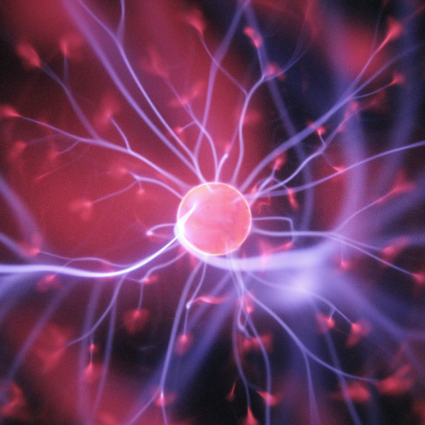Brain Blast | Early Predictors of Mental Illness
The latest news on the brain and beyond.
We're saying "goodbye" to the month of July and "hello" to the fascinating neuroscience studies it brought us. Below, we delve into the worlds of childhood development, mental illness, and workplace wellness.
Join us on this journey, share these stories with your friends, and let us know if there's a topic you'd like us to explore in the future.
The link between childhood sleep and adolescent health
While examining data from a multi-decade study, a University of Birmingham team found that individuals who had disrupted sleep patterns as young children (6-18 months) were more likely to experience mental health challenges as adolescents. The team hopes that better understanding the link between sleep and mental illness will enable them to design and implement early interventions.
Story via University of Birmingham
The sense that remains as life ends
As other senses fade at the end of human life, hearing may remain. Researchers played different sounds to unconscious individuals in the hours before they passed away. The EEGs of these test subjects looked very similar to those of healthy control subjects when they were played sounds, indicating that the test subjects were actively responding to the noises in their final moments.
Story via University of British Columbia
The mechanism the brain uses to stay focused
We must constantly drown out distractions in order to maintain our concentration. UC Riverside scientists used mice to study how target and distractor stimuli are processed by the brain. They found that the sensory cortices in the mice test subjects served as gatekeepers, allowing target stimuli to be processed and denying distractions from entering the working memory.
Story via UC Riverside
The use of deep brain stimulation to treat OCD
In Berlin, researchers have found success in making the use of deep brain stimulation to treat obsessive-compulsive disorder (OCD) more targeted and, therefore, more effective. They determined that when electrodes were placed on a specific nerve bundle between the subthalamic nucleus and prefrontal cortex, patients with OCD were more likely to experience benefits from deep brain stimulation.
Story via Charité – Universitätsmedizin Berlin
The mental benefits of having a desk job
Your desk job may have perks after all. According to a study, people who have physically inactive jobs are less likely to see a decline in cognition over time. On the other hand, individuals with physically demanding jobs were at three times higher risk for cognitive decline. The Cambridge team suggests that desk jobs may be more mentally stimulating, which could prevent declines in cognition.
Story via University of Cambridge
The unique brain signatures of psychiatric conditions
German researchers looked at MRIs from over 12,000 people. They noticed that individuals with major depression, OCD, bipolar disorder, and schizophrenia had similar brain abnormalities. However, the scientists were also able to identify brain aberrations that were unique to each condition. These findings may help doctors more effectively diagnose and treat psychiatric disorders in the future.
Story via University of Münster, Germany








